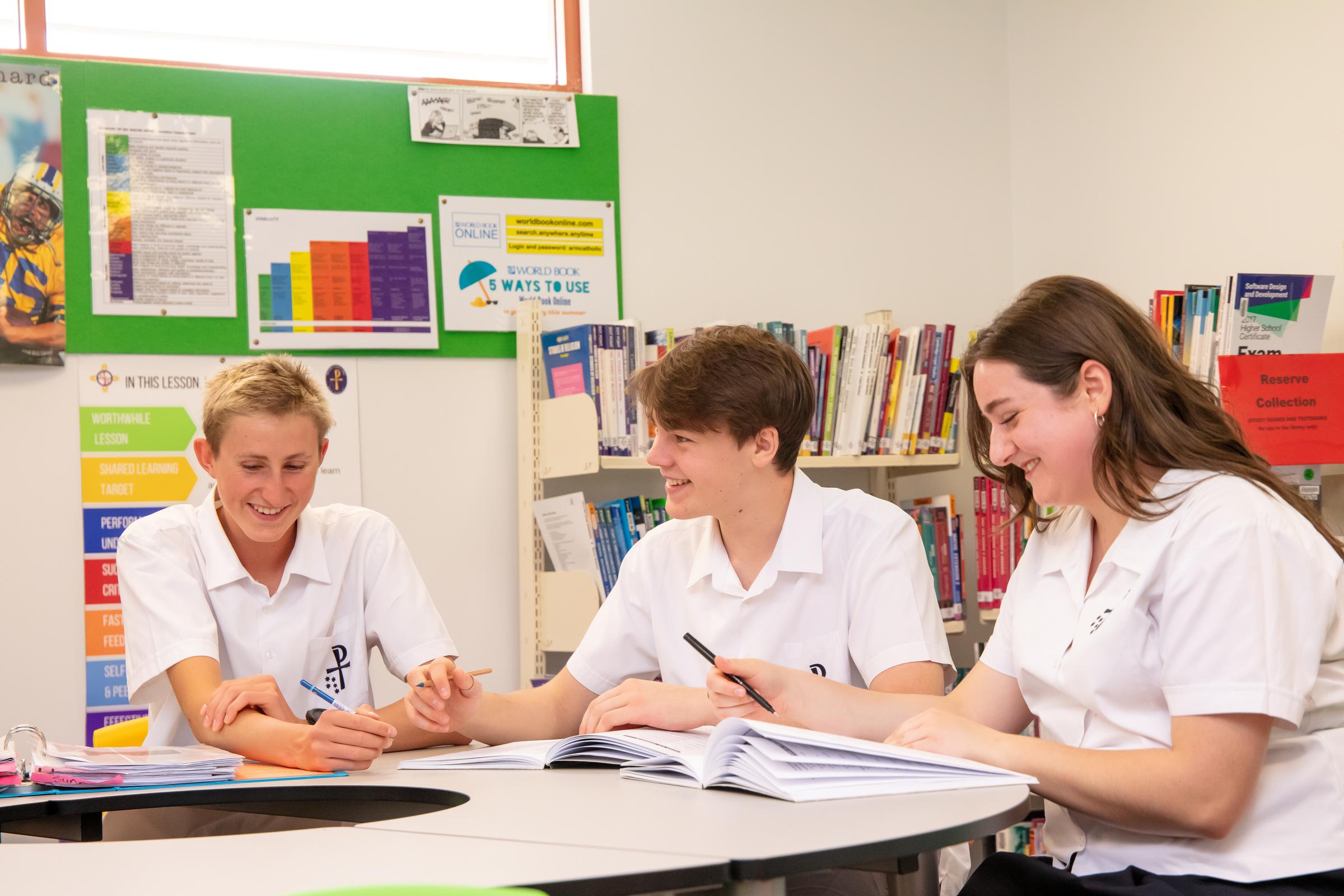Curriculum

Interim Reports
Interim Reports have been released this week and indicate, in a general way, how students are progressing in each class. They provide feedback regarding positively contributing to the class team by respecting the work of others, getting quickly to work and optimising learning opportunities.
Online Assessments
Students in Years 7 - 10 have begun the cycle of online assessments. eWrite assessments for Year 7 - 10 will shape the literacy focus in classrooms and interventions. Transition to Year 7 assessments have occurred to assess Year 7 students progress in Reading and Numeracy in Stage 3.
NAPLAN assessments will begin on the 15 March 2023 for Years 7 and 9 students. All assessments will be online, allowing for adaptive testing where the test presents questions which may be more or less difficult depending on a student’s responses. From this year, parents and carers will get earlier, simpler and clearer information about their child’s NAPLAN achievement based on new, more rigorous national standards. New proficiency standards with 4 levels of achievement for each year level will replace the previous 10-band structure. The new proficiency standards include a baseline benchmark to identify students who are likely to need additional support. Further information about NAPLAN can be found at https://www.nap.edu.au/naplan/for-parents-carers
As part of the stronger HSC standards reforms announced in 2017, all students in NSW must reach a minimum standard of literacy and numeracy in order to receive the High School Certificate. Students meet the standard by sitting the NSW Education Standards Authority (NESA) online literacy and numeracy tests and have the first opportunity to meet these early in Year 10. Students who need to re-sit any of these tests will be given up to four opportunities per year. The Reading and Numeracy tests are multiple choice and adaptive, each test is tailored to the individual student’s responses to previous questions. The questions presented to a student closely match their ability, so no two students will receive exactly the same test. In the Writing test students respond to a visual or text prompt, similar to the writing component of NAPLAN. Year 10 Students will undertake these assessments during allocated periods throughout the year and students in Year 11 and 12 will be allocated sessions during study periods. Results are released to the NESA students online accounts.
Parents of students in Year 10, 11 and 12 are encouraged to read this information from NESA concerning Minimum Standards - https://educationstandards.nsw.edu.au/wps/portal/nesa/11-12/hsc/hsc-minimum-standard
WHY STUDENTS NEED TO TURN OFF DEVICES AT LEAST HALF AN
HOUR BEFORE SLEEP
Artificial light from electronic and other devices generally emits a blue light (it may not look blue, but that is the underlying light). Blue light is a type of non-visible light at a very short wavelength.
What does blue light do to the human body?
Non-visible light has a lot of energy, and studies show that a lot of exposure to this type of light can impair your sleep cycle. During sleep lots of essential physical processes take place and it is also when learning from the day is consolidated in memory. This means that having enough sleep is vital for students.
Blue light is naturally generated only during the day, from sunlight. When it gets dark, naturally occurring blue light ceases, signalling the body to produce melatonin, the hormone associated with sleep. Using artificial lighting and devices which emit a blue light at night confuses the body-clock (the body’s natural sleep-wake cycle) by stopping the body from producing melatonin. This can result in disrupted sleep patterns, including difficulty in falling asleep, staying asleep and shortened sleep duration.
Those at greatest risk from night-time exposure to blue light are those with existing sleep disorders and adolescents who often experience delayed sleep patterns as a result of biological changes.
What can students do to limit their exposure to blue light at night?
Some suggestions include:
- Be exposed to sunlight during the day to assist in accurately setting your body clock.
- Stop using all electronic devices, preferably an hour before bed.
- Get a red or orange reading lamp, which does not emit blue light.
- Use blue light blocking glasses at night.
- Install a program or app on your computer or device to change the type of light it emits. A variety of programs are available including F.lux, EasyEyez, Night Filter, Zzz iPhone filter, Bluelight and Twilight.
- Invert the colours on your smartphone or iPad or Kindle, or change the device to the night-time setting.
- Turn the brightness down on your device for a few hours before bed (not perfect, but better than nothing!).
You can learn more about how to optimise your performance as a student at www.studyskillshandbook.com.au
Username: mccarthycc
Password: 77success
Sally Sparke - Assistant Principal - Curriculum,
Briony Martin - Leader of Pedagogy
